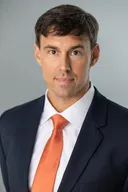Why This Physician Isn’t Burned Out

milkos/123RF.com
It’s a matter of perspective.
I am an emergency physician.
I provide care to abusive patients via a clunky EMR. I work nights, weekends and holidays. Because of unnecessary bureaucratic tasks, simple aspects of my job are cumbersome and take longer than they should.
And I am not burned out.
It would not matter if I was the CEO of my own company, worked the ticket booth at the movie theatre or were a freelance writer living on Fiji; I know there would be parts of those jobs I would hate and parts would I love—working in medicine is really no different.
The reasons below are why I don’t regret my decision to become a physician. If I had it to do over, I might do it a little differently, but I would definitely do it again.
Below are a few reasons I am not burned out from medicine.
Perspective
Medicine has a strange tendency to apply diagnoses to normal human reactions. The everyday is stuffed into medical terms so medicine can know what to do with them.
When it comes to the abstract painting that is human emotion, this is a classic square peg, round hole problem.
One can’t simply be in disbelief, she is in denial.
One doesn’t miss a deceased relative, he experiences a grief reaction.
And one doesn’t doubt her career choice, she is burned out.
Keeping perspective means you stop medicalizing normal human experiences. Normal is a spectrum, whether you’re talking about a relationship, your emotional state, or a career.
Top performers have high days and low days. They question their motivations and their decisions. So do people at the bottom—it’s a normal part of the human experience.
There certainly are people who are legitimately burned out. But not everyone who is second guessing a career or experiences a symptom of burnout meets the criteria. Not every low day is the beginning of a deep depression.
Some of us just want more than what medicine will ever offer. Maybe we just have multiple interests, many things we want to experience, more than one life we want to lead.
Keeping this perspective has helped me avoid burnout. It helps me to remember that when I experience despair, I don’t need to latch onto the diagnosis of burnout; I am not powerless and I don’t need to operate from a box called “burnout.” I can put those feelings in perspective and either accept them or change.
Though medicine is a lifestyle choice, it’s not a marriage. There’s no reason you can’t step out and experience something new once in a while.
And if you do decide to pursue other interests, it doesn’t prove that you’ve lost your passion, it proves you’re human.
Meaning
“The best way to find yourself is to lose yourself in the service of others.”
Mahatma Gandhi
Questions of meaning orbit the burnout experience.
Do you have meaning? Does it matter that you showed up to work today? What is your real purpose?
For me, the key to answering questions of meaning and burnout has been to think about it from the perspective of the patients: those people I entered this career to serve.
From their perspective, physicians always have meaning. Even on the worst days, if you really think about it, you can always find a person whose life you impacted positively - someone whose pain you alleviated or whose diagnosis you helped explain.
Or even someone who you reassured—it’s truly hard to find a day where you can’t find a single person you benefited.
And from that person’s perspective, it mattered that you woke up, choked down some coffee and came to work. From their perspective, you have meaning.
The more I am able to make this career less about me and more about the patients, the less I experience symptoms of burnout.
Experience and knowledge
Even at my lowest points, there are aspects of being a physician that I will never regret.
The clearest example is the experience of humanity. A new mother’s face when she sees her child for the first time. A mother’s face when you tell her the news about her teenager’s car accident. Giving a terminal diagnosis. Telling someone he’s in remission. Healing, unimaginable pain, vulnerability.
When I die, I will have experienced more of people in their most raw form than I ever would in any other career.
The daily work of a physician is the stuff of dramas. Your experience of people explodes in a thousand dimensions when you become a physician, and it becomes a part of you; this is an evolution I will never regret.
As a physician, you possess a knowledge coveted by most people—how do your lungs work? Why do you have to pee more when it’s cold? How do you do CPR and how do hospitals work?
The information obtained through becoming a physician is also a great body of knowledge to possess—it will always be useful, it will always be interesting and, most likely, it will always keep you employed.
The experiences and knowledge I have assumed have only been assumed because of this career choice; remembering this has kept negative thoughts in perspective.
Freedom
I also enjoy a tremendous amount of freedom as a physician. That freedom is very important to me and has kept me satisfied with my job.
I know that not every specialty is built like emergency medicine—but I’m never on call. My time off is my time off. I work, I see patients, and then I go home. I could, quite literally, turn my phone and email off if I chose.
I submit my availability on a monthly basis—and if I can’t work five days because I’m taking a vacation in the middle of March, no one can complain—I’m an independent contractor.
Naturally, there are some expectations on how much I work. But these are expectations that would exist in any job on earth. I must work a certain number of hours per month, but the difference is that I can pick when those hours are (or are not). I take several vacations per year and can arrange time off when I need it.
I have a freedom I would never have with a 9–5 job, and I am tremendously grateful that I do.
Pay
According to Salary.com, emergency physicians average about $287K/year and work about 170 hours/month.
The average income in the US is about $48K/year.
And, as it turns out, you need about $75K/year to be happy (or, more appropriately, one doesn’t become happier if they make more than about $75K/year, adjusted by state).
Generally speaking, even if I worked half-time as an emergency physician, I’d still make about three times the national average and well over the amount I’d need to live a comfortable life in the US.
In other words, physicians are financially quite stable. So even during the low points—times when you’re considering a new life or you just need to cut back, you know you have quite a nice cushion to fall back on.
The financial security of being a physician provides a lot to be thankful for.
Stability
It’s very likely that I will always have a job.
There is a predicted shortage of physicians in the US and there will never be a time when people aren’t getting sick. Doctors will always be needed in some capacity.
Even if you lose interest in clinical medicine, the knowledge you possess still has value. Working in private industry, pharmaceuticals, medical devices, file review, expert witnessing, writing, consulting—there are plenty of ways to monetize the knowledge base of a physician.
Regardless of your career trajectory, there is job security in being a physician that most other industries do not enjoy.
Keeping these perspectives in mind has helped me avoid burnout. They’re thoughts about this career that buoy some of the natural, negative experiences.
I have found them helpful; I hope you do too.
Related Posts
